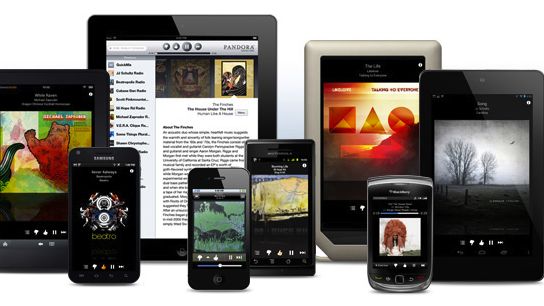Pandora instates monthly listening cap on free mobile users
Rock on, but only for 40 hours

Sign up for breaking news, reviews, opinion, top tech deals, and more.
You are now subscribed
Your newsletter sign-up was successful
Are you listening, mobile Pandora users? That's the sound of free unlimited music shriveling up.
The internet radio service today announced a plan to cap free mobile listening at 40 hours per month, starting in March.
The reason, explained Founder Tim Westergren in a blog post, is rising royalty rates.
"Pandora's per-track royalty rates have increased more than 25 percent over the last three years, including 9 percent in 2013 alone and are scheduled to increased an additional 16 percent over the next two years," he wrote.
"After a close look at our overall listening, a 40-hour-per-month mobile listening limit allows us to manage these escalating costs with minimal listener disruption."
The other 96 percent
Pandora-ites will remember the company introduced a 40-hour monthly cap on free desktop listening previously but rescinded that policy in September 2011.
According to Westergren, less than 4 percent of Pandora users ever hit the 40-hour mark a month, meaning a small percentage of uber users will be effected.
Sign up for breaking news, reviews, opinion, top tech deals, and more.
Average Pandora people usually hang out around the 20 hours of listening a month across all devices, not just phones.
That said, should you exceed the listening limit, you'll need to fork over US$0.99 for the remainder of the offending month.
Of course, there's still the option to listen limitlessly on desktops and laptops, or to pay US$3.99 for a Pandora One subscription that not only offers unlimited tunes but eliminates groove-interrupting advertising.

Michelle was previously a news editor at TechRadar, leading consumer tech news and reviews. Michelle is now a Content Strategist at Facebook. A versatile, highly effective content writer and skilled editor with a keen eye for detail, Michelle is a collaborative problem solver and covered everything from smartwatches and microprocessors to VR and self-driving cars.